UN Women China’s work are aligned to the 2021-2025 United Nations Sustainable Development Cooperation Framework (UNSDCF) for China to support China’s development priorities in the next five years. It is also in line with China’s 14th Five Year Plan (2021-2025), China’s National Human Rights Action Plan (2021-2025), and the Outline of Women's Development in China (2021-2030).
Having been active in China since 1998, UN Women primarily works on the following thematic impact areas in the country:
UN Women China work with key partners so that all women are able to fully and equally participate in decision-making, and women and girls can benefit from gender-responsive laws, policies, budgets, services, and accountable institutions. Our work in this thematic impact area is channeled through the China Gender Fund for Research and Advocacy (CGF), a rolling trust fund modality that awards periodic grants through an open and competitive process. CGF responds to China’s existing and emerging needs in gender equality and governance systems by supporting projects across China with financial and technical support to use evidence-based research for capacity development on The Convention on the Elimination of All Forms of Discrimination against Women (CEDAW) compliance and the development and implementation of gender-responsive laws, policies, and standards.
Among many CGF results, one recent highlight was a project to promote equality for girls in education in Dongxiang County, Gansu province. Implemented by Gansu Xing Bang Social Work Serving Center and the Education Bureau of Dongxiang County, the project resulted in Gansu Province issuing a red title order, a form of local regulation, to uphold the rights of minority girls and to promote gender equality in education more broadly. The order will protect the rights of 37,300 minority girls and require schools in Dongxiang County to provide 76,200 students, girls, and boys, with equal access to education.
A second CGF highlight came from a project on mainstreaming gender equality into philanthropy, implemented by the China Association for NGO Cooperation (CANGO). It resulted in China’s first-ever Gender Mainstreaming Guidelines on Philanthropy. Civil society organizations welcomed the guidelines, and 43 groups made a joint commitment to follow them in their work and to integrate gender perspectives into philanthropy and charitable assistance more broadly.
In 2022, UN Women strengthened normative work through an institutional mechanism, the UN Women Gender Equality and Women’s Empowerment and CEDAW Training Centre. Established in Zhejiang Women Carders School, the centre offers periodic training to bolster the capacities of national partners, especially civil society groups and individuals. It helps them apply the normative framework of CEDAW in policy advocacy and programming.
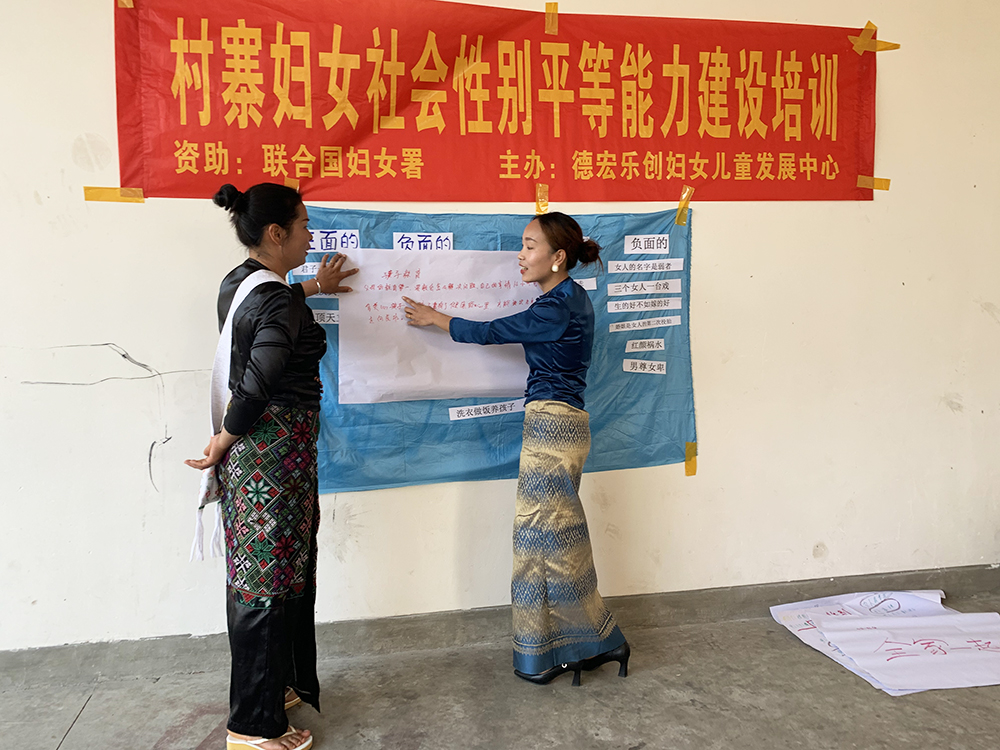
Since 2004, the CGF has announced nine Calls for Proposals and funded 75 projects across China.
14 projects have led to national or provincial legislation or policy changes supporting women’s empowerment and rights.
Funding raised since 2004 totals USD 6,430,000, and 70% of the projects targeting disadvantaged beneficiaries.
UN Women China works to advance the economic empowerment of women so that they have income security, decent work, and economic autonomy. To achieve this, we partner with a range of allies, from UN entities to government ministries, industry associations, regional bodies, international financial institutions, and women’s entrepreneurship organizations. Five priority areas help advance women’s economic empowerment:
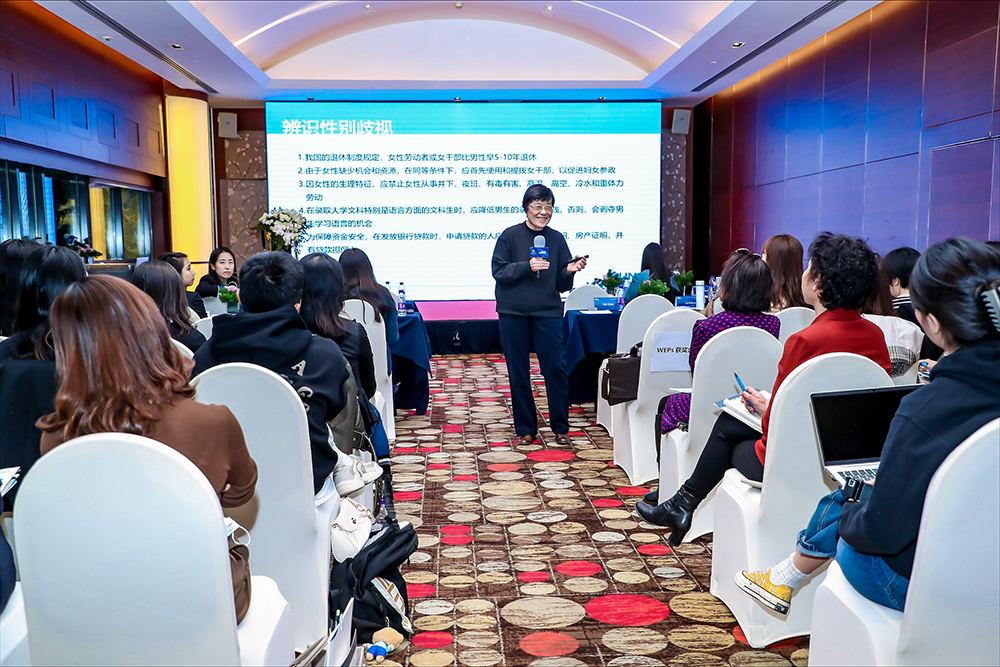
The private sector is an important catalyst of gender-inclusive development. Through the Women’s Empowerment Principles (WEPs), UN Women China supports businesses to mainstream gender in their operations and corporate policies. This includes providing expert inputs to industry guidelines and offering capacity development, peer learning and technical support for employers. Evidence-based advocacy engages the Government on economic policies to promote women’s decent work and career development.
Rural women make significant contributions to economic gains from agriculture, yet compared to men, they face a number of barriers to their development and empowerment. In support of China’s efforts towards poverty alleviation before 2020 and rural revitalization afterwards, UN Women forged a partnership with the International Fund for Agricultural Development to conduct joint programmes on rural women’s economic empowerment, aimed at securing livelihoods and enhancing climate resilience. Over 95,000 rural women have benefited from the “Strengthening Qinghai Women Farmers’ Income Security and Resilience in a Changing Climate” and “Hunan Rural Revitalization Demonstration” programmes. These have provided climate-proof infrastructure, climate-smart agricultural skills, and new livelihood opportunities. Further, the development of women-led agricultural cooperatives and non-agricultural businesses has enhanced women’s participation and leadership in rural governance.
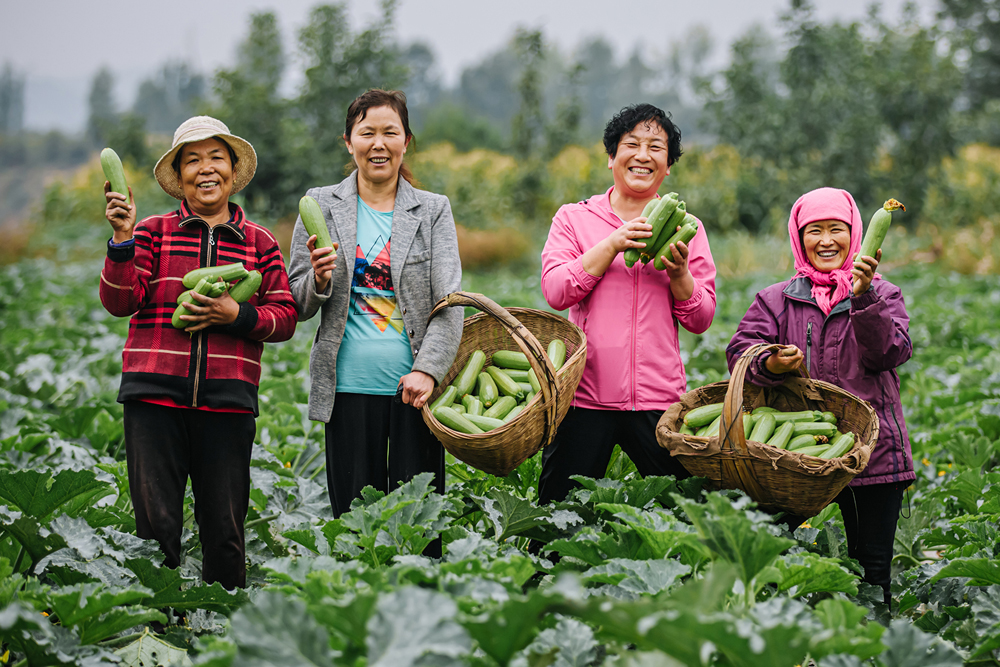
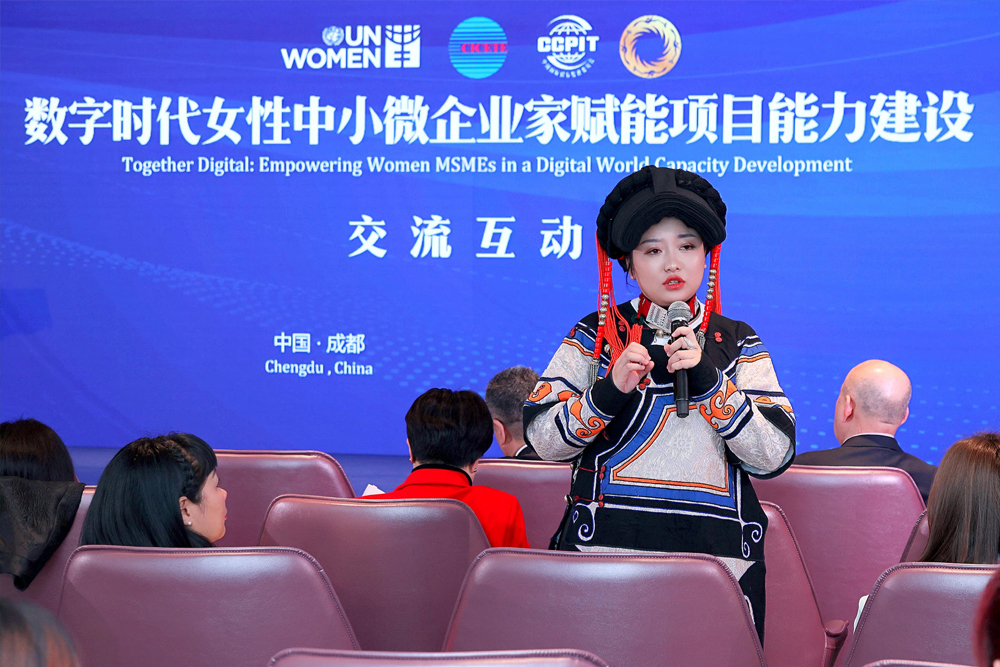
UN Women jointly with the Ant Foundation launched in 2022 “Together Digital”, a 5-year programme to support women-led MSMEs and empower them to participate and thrive in the digital economy. Currently being piloted in the Asia Pacific region through country projects in China and Indonesia and other regional initiatives, the Together Digital Programme has reached several hundred women entrepreneurs with training on digital skills and business management, including gender-sensitive digital entrepreneurship. Under the Programme, UN Women is also partnering with China’s International Centre for Economic and Technical Exchanges to set up two dedicated women entrepreneur training hubs which will support over 30,000 women entrepreneurs to start, grow, or expand their businesses. The Programme will also support women entrepreneurs’ increased access to mentorship and other opportunities through the establishment of a regional partner network, all towards promoting women’s digital empowerment.
From 2018 to 2022, over 95,000 rural women in Hunan and Qinghai provinces benefited from enhanced climate resilience, with increased access to information, technologies and markets, and sustainable livelihood opportunities.
By 2022, over 350 Chinese companies committed to promoting gender equality by signing the WEPs.
Over 100,000 employees, around half of whom are women, benefited from gender-responsive policies and practices in their workplaces.
From 2020 to 2022, Over 550 women-owned small and medium-sized enterprises and 6,000 women employees in Wuhan and Tianjin directly benefitted from all-round model recovery support schemes that included capacity development, dedicated business support and cash grants.
Ending Violence Against Women and girls is a key priority for UN Women in China and globally. It is one of the four thematic areas in the New UN Women Strategic Plan (2022-2025) and a key area of focus under the United Nation Sustainable Development Cooperation Framework for China (UNSDCF) Outcome Two. UN Women in China has been working on this area for over a decade with a comprehensive approach towards strengthening women’s equitable access to VAWG services and advocating for positive social norms changes by fostering a multi-stakeholder engagement including men, boys, and young people.
Key highlights include UN Women’s substantive contribution as the co-chair of the UN task force that liaises with the national anti-domestic violence law drafting committee to ensure consideration of international standards and best practices. UN Women piloted a multi sectoral coordination mechanism on ending violence against women and girls at the provincial level in Hunan, Gansu, and Sichuan provinces. It also localized and rolled out the Essential Service Package for Women and Girls Subject to Violence through developing a training manual and capacity development for front-line service providers.
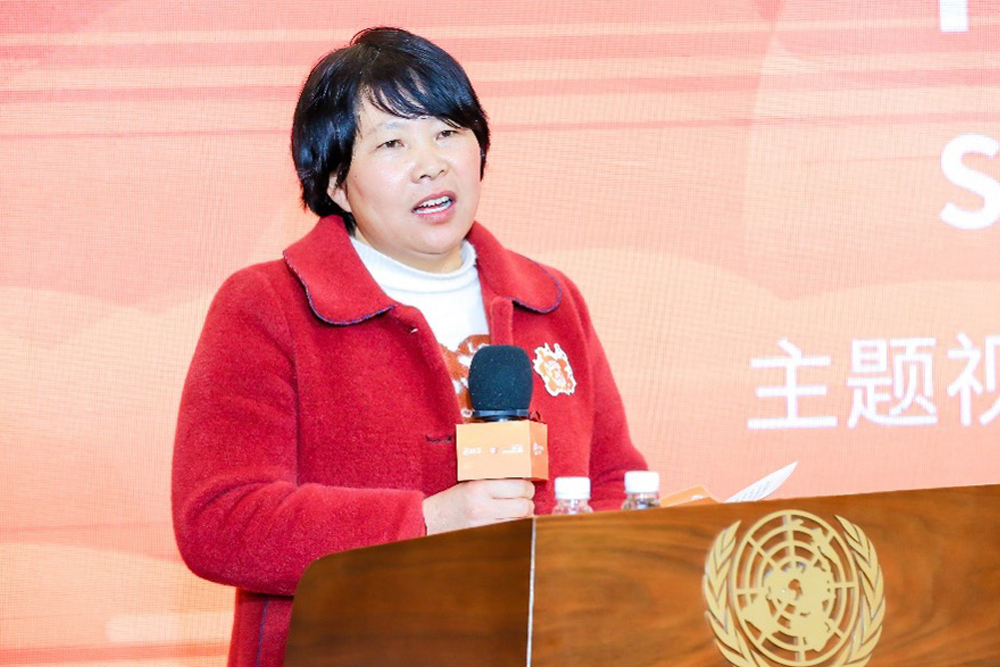
From 2017 to 2019, 218 empowered junior and senior high school students became peer educators equipped to design and facilitate training tailored to the needs of their peers.
44,600 positive online discussions on men’s roles in ending violence against women and respecting survivors took place, with 223 million views generated by social norms change campaigns engaging key opinion leaders, men, boys and young people.
From 2021 to 2022, 50 front-line social service organizations and civil society organizations in 10 provinces gained knowledge and skills to deliver essential services to respond to gender-based violence.